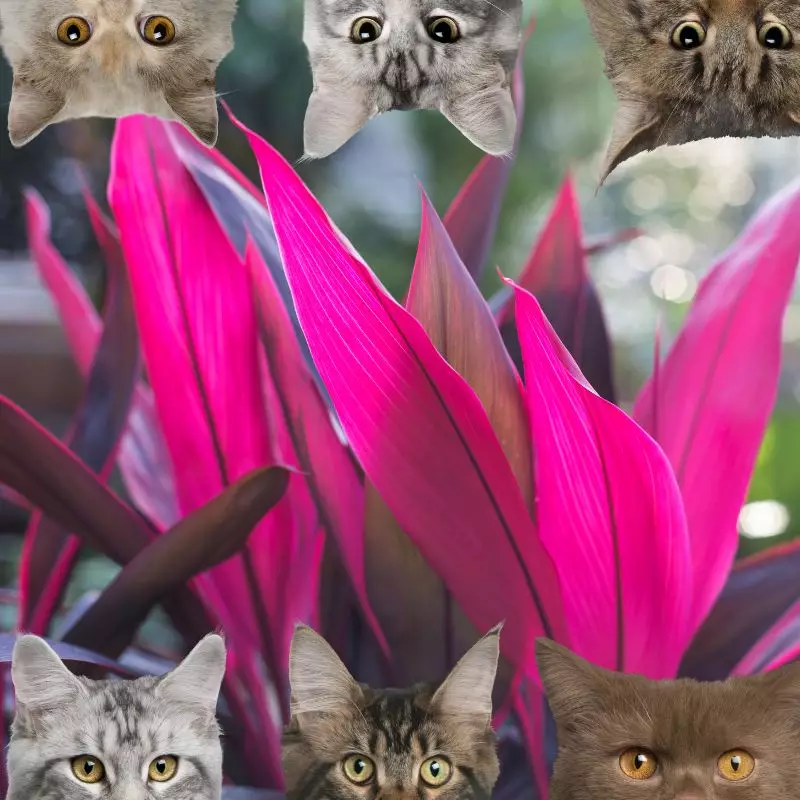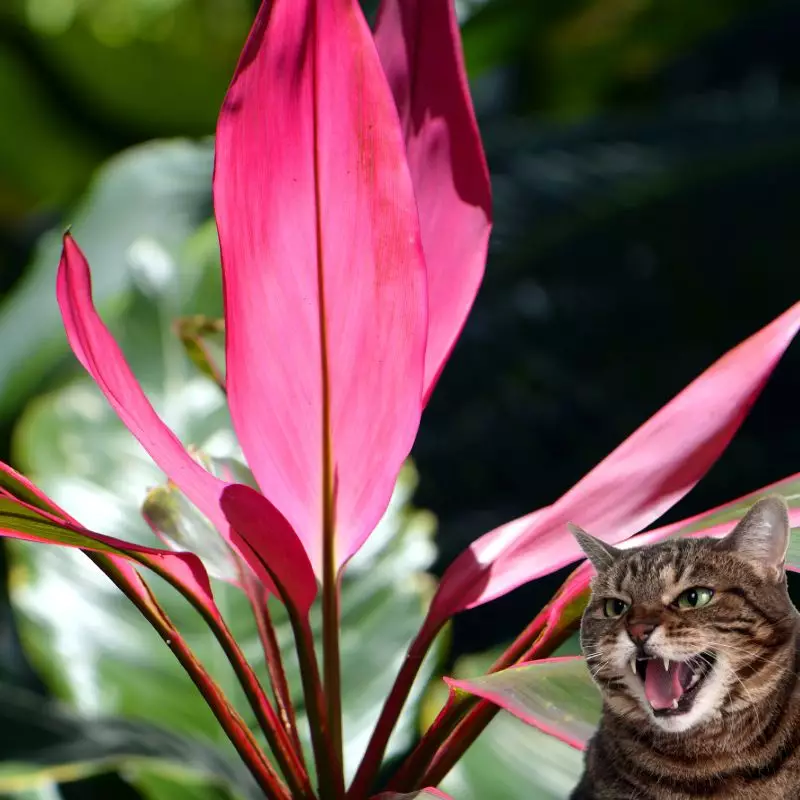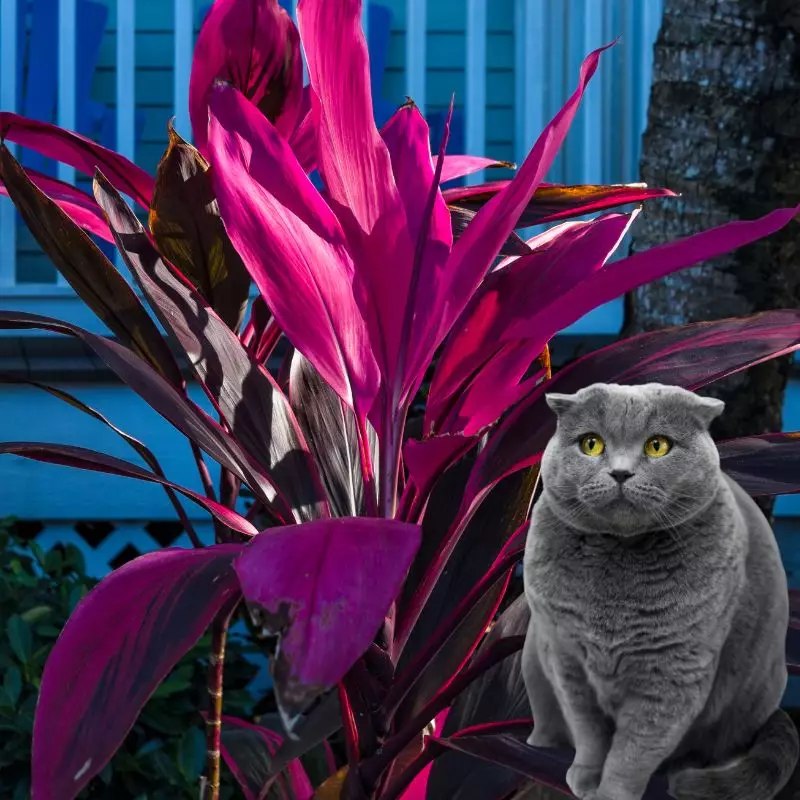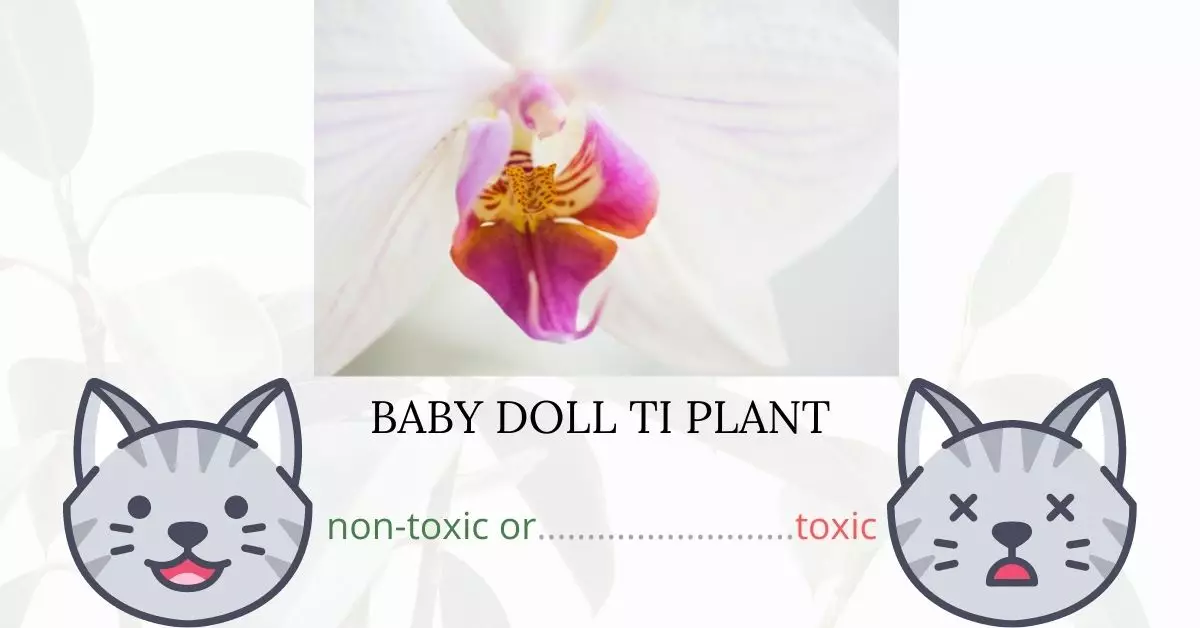Yes, the Baby Doll Ti Plant, also known as the Good Luck Tree or Hawaiian Ti Plant, is toxic to cats. When ingested, it can cause symptoms such as vomiting, hypersalivation, anorexia, and dilated pupils due to the presence of saponins. Saponins are natural chemicals produced by many plants as a defense against insects, microbes, and fungi.
This article has been crafted in collaboration with a team of experienced DVMs (doctors of veterinary medicine). With their expertise and our comprehensive research from high-authority websites like ASPCA and PetMD, we aim to provide you with accurate and up-to-date information about the potential risks associated with various plants, particularly the Baby Doll Ti Plant, and their effects on cats.
Clinical Signs of Baby Doll Ti Plant Poisoning in Cats

If your cat comes into contact with, smells, or consumes any part of the Baby Doll Ti Plant, it might exhibit various symptoms. Here’s a breakdown of the symptoms and their reasons:
- Anorexia: A cat may lose its appetite after ingesting the plant. The saponins present can cause discomfort in the gastrointestinal tract, making the cat reluctant to eat.
- Diarrhea: The ingestion of the Baby Doll Ti Plant irritates the cat’s digestive system. The body tries to expel the harmful saponins, resulting in diarrhea.
- Dilated Pupils: The toxins in the plant can affect a cat’s nervous system. This nervous response may manifest as dilated pupils, indicating that the cat is in distress or experiencing altered neurological function.
- Depression: Due to the discomfort and overall unwell feeling after ingesting the plant, cats might become lethargic and show signs of depression. This could also be a result of the body’s attempt to conserve energy while processing the toxin.
- Excessive Drooling: Also known as hypersalivation, this is a direct response to the irritation caused by the plant’s chemicals. The cat’s body produces excessive saliva in an attempt to expel or neutralize the irritant.
- Vomiting: This is a primary defense mechanism. When a cat ingests something harmful, its body will often induce vomiting to expel the toxic substance. In the case of the Baby Doll Ti Plant, saponins cause a significant irritation to the stomach lining, prompting the cat to vomit.
Understanding these symptoms can help cat owners recognize potential poisoning early on and seek timely medical attention.
First Aid and Treatment of Baby Doll Ti Plant Poisoning in Cats

If your cat is showing any signs of poisoning, call your veterinarian as soon as possible. In most cases of poisoning, the vet will flush out any remaining toxins from your cat’s system. He or she may also administer activated charcoal for absorption of poison residue that may be left in your cat’s stomach.
Sucralfate, which reacts with your cat’s stomach acids to form a thick paste, may also be prescribed by your veterinarian. This paste lines your cat’s stomach, protecting it from anything that might get stuck there. Kapectolin, another drug intended to protect the stomach lining and remove toxins, may be given to your cat.
Recovery from Baby Doll Ti Plant Poisoning in Cats

The symptoms of Baby Doll Ti plant poisoning are mostly mild to moderate so your cat will eventually recuperate. Follow your veterinarian’s instructions regarding post-treatment care for your cat. Make sure to give your cat an ample amount of fluids. Keep your cat cozy and comfortable as he or she is recovering.
Prevention of Baby Doll Ti Plant Poisoning in Cats
Check your environment and make sure to remove Baby Doll Ti plants to prevent getting your cat exposed to it again. As much as possible, do not let your cats stray far from your home. Keep them busy and mentally stimulated indoors. You can also try building fences and putting safety nets around your house as necessary.
If you love plants but have cats at home, check out these lists:





